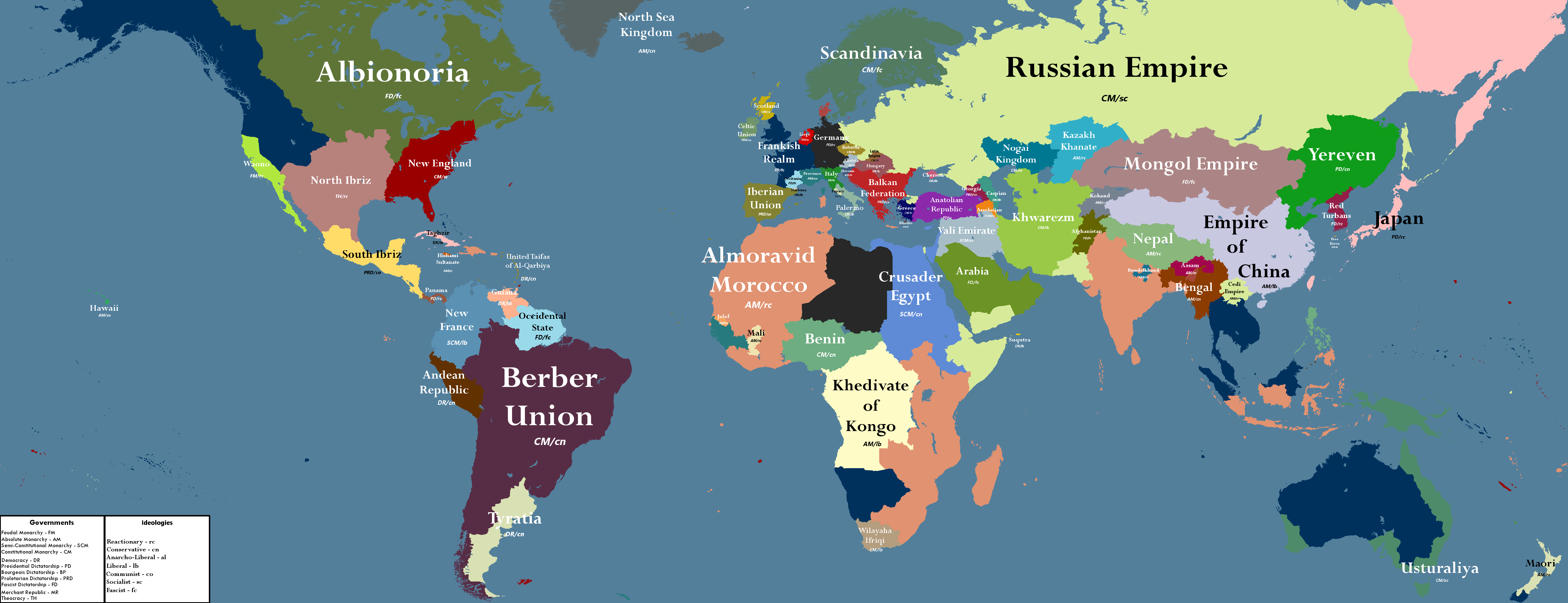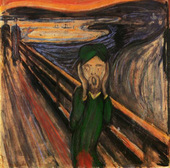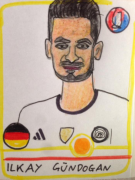|
Report: I've discovered that the liferating is being divided by ten in some provinces. I do not know why this is happening, only that it is happening.
|
|
|
|

|
| # ? May 31, 2024 19:00 |
|
I've gone through all the southeast asian provinces and fixed them, so here you go. If you come across any more provinces like that and want a quick fix, just go to the province history file and add a character space or line break after the liferating value. Apparently the game doesn't count the 0 at the end of a 30 or 20 if there isn't a space, for whatever reason 
hashashash fucked around with this message at 19:27 on Jan 25, 2019 |
|
|
|
Hashim posted:I've gone through all the southeast asian provinces and fixed them, so here you go. I'm guessing the game parses the liferating as a substring ending at (linelength)-1, because it assumes there's a space after it? That seems really stupid but I can't think of anything else.
|
|
|
|
|
Staltran posted:That seems really stupid but I can't think of anything else. Victoria2.txt
|
|
|
|
Chapter 25 - World of 1936 A century has passed since the great powers first met in the Congress of Cádiz, with hundreds of politicians and diplomats and envoys making their voices heard in the weeks that followed, determined to restore the natural order of monarchism, smother the emerging radical movements, and establish a peace that would last. Needless to say, they failed miserably.  Over the course of the nineteenth century, the Great Powers clashed in four conflicts — the Unionist War, the Iberian War, the Rhine Crisis and the Continental War — each of which was more devastating than the last, but they would all be dwarfed by the first conflict of the twentieth century, the Great War. Everything ends, however, and after six years of trench warfare and aerial dogfights and tank duels, the Peace of Prague brought that colossal war to a close… but its terms were harsh and uncompromising, breeding hatred and enmity between heated rivals and former allies alike. And within mere months, it became clear that this peace was only temporary, as any attempts to found an international league of nations failed, as the old alliances slowly collapsed, as the Great Powers fervently pursued rearmament.  No, this peace is a mere reprieve at best, a short intermission in the story, a brief respite before tensions exploded into another world at war. Europe  The Socialist Union of Iberia, and the Rise of Communism Starting at the centre of the world, the Iberian peninsula has been reunited after the bitter infighting and devastating invasions of the past two decades, with the radical communists spearheading the Iberian Revolution, emerging victorious from the Civil War and repelling their enemies in the Great War, and in doing so they’ve finally safeguarded their revolutionary state — the Socialist Union of Iberia.   The union is led by Maz Mazin, a political theorist and soldier who led the revolutionary alliance during the Civil War, masterminding a series of decisive victories against monarchist forces before turning on his allies and purging political rivals and ideological dissidents. After that, there were few left to oppose him when he declared himself Supreme Leader. The Shura, comprised of the surviving revolutionary and radical leadership, is still responsible for the drafting of legislation and decrees, but these powers are ultimately symbolic as they had to be ratified by the Supreme Leader — Maz Mazin, only further cementing his position as dictator of the Iberian Union.  In terms of population, the recent years of discord have led to millions of deaths in battles and purges, with millions more fleeing west as refugees. As order is restored across the peninsula, however, the population has gradually begun to recover, with a recent census placing the final figure at around 40 million people.  Even so, Iberia’s population is lagging behind the other great powers, so the communist leadership have begun investing into other avenues to achieve parity on the world stage. The most ambitious of these avenues is the re-industrialisation program, a drive to reopen shuttered plants and construct new manufactories across the width of the peninsula, an immense effort that will see Iberia emerge as an industrial juggernaut once more.     The vast majority of these new factories are devoted to heavy industry and arms production, allowing the growing ranks of the army, navy and airforce to be equipped with the latest weaponry. In fact, by the early months of 1936, the Red Army had grown to number almost 350,000 standing troops — still heavily outnumbered by the Franks and Moroccans, but an impressive build-up nonetheless — whilst the Red Navy stood at an imposing 65 warships, the vast majority being commerce raiders and cruisers.  None of this would be possible without a robust economy, of course. In stark contrast to the bankruptcies and financial ruin suffered by Iberia in the dying days of the Great War, the economy had gradually recovered over the course of the past decade, supervised and administered by the ministers of the Shura. By 1936, it had risen to become amongst the largest in the world, second only to Francia and Russia.  All of this contributed to the rise of radicalism on the world stage, with Iberia becoming the stronghold of communism and vanguard of the red revolution. With that said, however, the Iberian Union wasn’t the only communist power in Europe. It wasn’t even the first. The Balkan Federation, and the Birthplace of Socialism Across the width of the Mediterranean, the Balkan Federation had flourished over the past two decades, wisely staying clear from the devastating conflicts to rage across the rest of the continent. This has left them diplomatically isolated, however, with nearby democratic and fascist regimes refusing to recognise them, and the distant Iberian Union demanding subservience in return for support.   Despite their small population, the years of peace allowed the Balkan leadership to expand their industry and modernise their military, quickly becoming a force to be reckoned with in Eastern Europe. That said, not all was well in the Balkans. A series of corruption crises and election frauds swept across the peninsula in recent years, greatly damaging the reputation of the Federation, which claimed to rule through democratic centralism and collective leadership.   The top is the breakdown of ideology in their government, the bottom shows population info including the breakdown of ideology amongst the populace. Nonetheless, the break between Balkan and Iberian theory has led to a decline in relations between the two powers, a gulf that may not be traversable. That hasn’t stopped both from attempting to export their ideology, however, with Iberian guns and money playing a significant part in the establishment of proletarian dictatorships in Celtica and Provence — the former being a small and struggling shadow of its former self, and the latter becoming a powerful bastion of radicalism in the heart of Europe.   The Frankish Realm, and the Pact of Paris To the immediate north, meanwhile, another power was planning to export a revolution of a very different sort. Led by the dictator Jacques Vernier, widely called le Commandant by his devoted followers, the Frankish Realm rose from the ruins of monarchy and liberalism to become the stronghold of fascism in Europe, quickly emerging as the world’s strongest military and industrial force in the years that followed.   And their ambitions were certainly formidable. In a speech that would later be called the Pact of Paris, Jacques Vernier vowed to oppose liberalism and leftism through any means possible, support and champion fascist regimes across the continent, and eventually spearhead the unification of Europe under a single banner… A black banner.   Encouraged by promises of monetary and military aid, a string of depositions and coup d’états have erupted across the width of the world, with fascists coming to power in Italy, Hungary, Scandinavia and Albionoria, amongst others.      These new regimes immediately began negotiating their entry into the Pact of Paris, transformed from a propagandist idea into a political alliance, one that will soon stretch across the globe. Germany, and the Looming of Civil War The struggle to unify the German lands had stretched across hundreds of years and thousands of generations, but it was finally united under the ideals of liberalism and democracy at the turn of the century, only to be drawn into the greatest bloodbath in human history just a decade later. Now, after being violently defeated and occupied in the dying years of the Great War, Germany has become a land of bitter divisions and irreconcilable differences. A series of uprisings and takeovers has rocked the country in recent years, with neighbour killing neighbour and brother turning on brother until only one solution remained — civil war.   With the ideological split already drawn in the sands, a three-way conflict between fascists, liberals and socialists is on the verge of erupting in Germany, quickly attracting the attentions and resources of other Great Powers. Regardless of which side emerges victorious, there is no doubt that Germans everywhere stand only to lose. The Russian Empire, and the Decline of Constitutionalism The principal opposition to the uncontained spread of fascism lies in the Russian Empire, watching and waiting from the other side of the continent.   Stretching from Pomerania to Sakhalin, the power and influence of Russia cannot be underestimated, with the Empire presiding over the largest army in the world, maintaining strong relations with the new world democracies, and controlling all the major shipping routes between east and west — the Bosphorus Straits, the Suez Canal and the Bab-el-Mandeb Straits. At the dawn and dusk of the Great War, the Empire of All-Russia had no equal.    But after the sheer destruction and devastation wrought by the globe-spanning conflict, the Duma of Russia was determined to avoid any new conflicts in the near future, withdrawing into isolation and seclusion immediately after signing the Peace of Prague. Unfortunately for them, that policy quickly backfired in the months and years that followed, with their closest allies in France collapsing to fascism, with the situation in Germany deteriorating into civil war, with communists seizing power in the Iberian and Balkan peninsulas. By 1936, Russia was the only constitutional government remaining in Europe, the last beacon of democracy in the old world.   Determined to oust the current isolationist government, a bitter campaign between socialists and liberals erupted in the run-up to the 1937 elections, with the liberal party determined to curb the rise of radicalism and restore constitutionalism in Europe. This “commonwealth of constitutional nations”, as Russian ministers have begun calling it, envisioned an economic union and military alliance between the last remaining democracies in Europe, increasingly threatened by Francia and the Pact of Paris. For now, however, it is nothing more than a proposal.    Africa  The Almoravid Sultanate of Morocco, and the League of Monarchies Divided almost evenly between the reigns of Sultan Yahya and Sultan Ajjedig, the Almoravids have weathered the storms of the last century and maintained their standing amongst the Great Powers, with father and son reinforcing their rule in West Africa, completing their conquest of India, and expanding to dominate East Africa and Indonesia.   There was a time when the powers of the Sultan were checked by constitution and parliament, but a reactionary coup d’état in the early days of the new century brought an end to that, with a group of officers restoring absolute power to Sultan Ajjedig. And after surviving the trials and tribulations of the three decades, there are few who still doubt his credentials, with Ajjedig reviving his country after the defeat in the Continental War, launching a successful industrialisation campaign in North Africa, voraciously expanding his standing military forces, and leading his people to victory and triumph in the Great War, despite being driven to the brink of defeat by Andalusi guns and Beninese tanks.   The victory was very hard-won, however, exhausting the population and ruining the economy in the Maghreb for years to come. In danger of becoming the sick man of the Great Powers, Sultan Ajjedig has acted on the advice of his viziers and begun transitioning his autocratic empire into a close-knit federation, granting greater autonomy to his far-flung possessions in South Africa, Usturaliya and India — this was the League of Monarchies, the beginnings of another global alliance.    The Crusader Kingdom of Egypt With Morocco gradually declining on the world stage, a legitimate threat has emerged in the Crusader Kingdom of Egypt, led by the retainers and ministers of the Apanoub kings.   Fostering friendly relations with both Russia and Francia, the kings of Egypt have long desired to supplant their western rival as the dominating power of Africa, especially after Morocco seized the source of the White Nile along the northern coast of Lake Zulfiqar. And that’s precisely what they intend to do, with the kingdom launching ambitious industrialisation and expansion projects over the past decade, including the construction of an immense navy capable of challenging the Berbers at sea. The vast kingdom also suffers religious divisions and ethnic strife, however, a constant leach on their stability and resources.   To the south, meanwhile, the two remaining powers in Africa have been recovering from their humiliating, crushing defeats in the Great War. The royal dynasties of Benin and Kongo managed to retain their crowns after brutally suppressing the uprisings and rebellions of the 1920s, but the terms of Prague have left them stinging nonetheless, with both determined to avenge their disgraceful defeats and retake their stolen lands at the next opportunity.   The Middle East  The Vakhtani Caliph once dominated the entirety of the Middle East, with the notable exception of Shia-dominated cities of Mecca and Medina, where the Sharifian Caliph rose to dominate the Hejaz, then the Arabian peninsula, then Greater Arabia. The two caliphs had clashed in a number of wars over the past century, but they were forced into an alliance of convenience during the Great War — the Caliphal Alliance — only to be defeated all the same, dismantled and partitioned by the victorious powers. That crushing defeat would finally bring the era of caliphs to an end, with popular uprisings and military coups leading to the overthrow of caliphates in both countries, ushering in an age of renewed nationalism and radicalism in the Middle East.   The Khwarezmian Empire As a part of the victorious alliance in the Great War, the Khwarezmian Empire had their claims to western Afghanistan recognised by the Great Powers, but it still took several years of intermittent fighting and bloody campaigns before they could secure the long-claimed and sparsely-populated territories.   And even then, the Afghani populace simply shifted tactics and began a protracted, low-intensity guerrilla campaign against the Turks, slowly but surely making them bleed. In an effort to stabilise his fragmenting empire, the Khwarezm-Shah surrendered his absolute powers to an elected parliament, finally granting representation to the Persian majority — and in doing so, decentralising the empire and diluting his powerbase. As clashes in the streets and assemblies grow increasingly common, the immediate future of Khwarezm only grows bleaker.   The Vali Emirate These futile reforms and internal troubles have led to Khwarezm being eclipsed by its regional rival, the Vali Emirate of Iraq and Syria, a former backwater that rose to become a regional power during the Great War.   Despite having a token constitution, the Vali Emir retained almost absolute power in his kingdom, which he used to expand his industrial base, enlarge his standing armies and found a number of Kurdish settlements through his vast territories, stretching from Lebanon to Khuzestan. The Emir’s resettlement policies have led to the supplanting of local Arabs and Kurds becoming the majority in large parts of the Middle East, breeding hatred and exacerbating tensions between sects and ethnicities throughout the Vali Emirate, but any attempted uprisings were promptly and brutally crushed by the modernised army. The growing empire would not be allowed to fragment and collapse, and if sheer force was needed to preserve it, then so be it.   Vali ambitions extend far beyond their current borders, however — towards the recently-discovered oil fields in Arabia, towards the troubled populace in Persia, towards the repressive regime in Egypt. The struggle to dominate the Middle East is not yet an end, it would seem. India  Despite periods in which the Japanese and Andalusi controlled large parts of the subcontinent, the Moroccans eventually managed to bring almost the entirety of India under their control, centralised and granted autonomy as the Almoravid Raj in the early months of 1936. With the exception of Russian Sindh, the only other powers still clinging to independence in the subcontinent are Bundelkhand and Bengal, the former surviving through a mutually-beneficial relationship with the Almoravids, and the latter by viciously repelling any attempted invasions into their territory. These Bengali victories have led to renewed calls for Indian unification, and with the Almoravid Empire on the decline, these calls are being met by increasingly large numbers of volunteers and patriots, desperate to fight and ready to die for the notion of a nation.   The final battle for India is fast approaching. East Asia  The status quo in Asia has been violently shaken in recent years, with a number of smaller but equally-bloody conflicts raging in the east whilst the Great War was being fought in the west. A fascist dictator seized power in Mongolia and a fanatic warlord in Yereven, but it was the alliance between these two leaders that allowed them to launch their successful invasions into China, seizing vast tracts of land in a stunning, unexpected victory. And whilst all eyes were focused on China, the Japanese managed to install a friendly regime in the Red Turban State, forcing the ruling monks to flee into exile in Jeju Island.    The Empire of China These defeats were met with panic and terror in the upper echelons of Chinese society, with the bourgeoisie retaliating by deposing their emperor and installing a distant cousin as their puppet, allowing them to closely control every aspect of the empire.   The next few years aren’t looking very hopeful, however. The Mongols and Manchurians may have been staved off with humiliating concessions and immense reparations, but they left desolation and desperation wherever they marched, turning the peasantry away from the monarchy and towards more radical pursuits — more specifically, fascism. If the Mongols, Manchurians or Japanese didn’t come calling again, then rebels and revolutionaries would finish the job for them, with the fascist movement poised to erupt into violence and bloodletting within mere months.   The Revolutionary Republic of Japan And just across the sea, the Japanese were certainly watching with interest, but they had their own troubles to tackle.   Despite possessing the largest army in East Asia, the Japanese had been unable to launch any large-scale offensives in recent decades, hamstrung by the terms of the Treaty of Edo — a one-sided diktat drawn up by Russia, Morocco and New England that completely dismantled Japan’s overseas empire. Fed up with the incompetent leadership and declining standards of living, however, a low-level insurrection was quickly gathering steam across Japan, with imperialist liberals, isolationist fascists and aggressive communists all planning to assassinate the Shushõ and seize power. And once that came to pass, the rest of the world would suffer their wroth.   Indochina, Indonesia and Usturaliya Southeast Asia has been completely partitioned between the Frankish and Almoravid empires, the source of much of the population and natural resources for the two powers, with the exception of the islands of Sulu and Otokun, which are administered by Almoravids and Benin respectively. The alliance between Morocco and the Dual Monarchy meant that the partition of Indonesia was conducted quickly and effectively, but with the overthrow of monarchy in France, there have been renewed calls for imperialism in Paris and Marrakesh. Both regimes have deployed thousands of additional troops in Indochina and Usturaliya, with the aggressive Franks determined to complete their conquests, and the declining Moroccans desperate to preserve their empire.  North Gharbia  The political map of North Gharbia has changed drastically over the past century, with the most recent alterations being in Albionoria and Al Qarbiya, with fascists seizing power in the former and democracy being established in the latter.   All eyes were directed somewhere else entirely, however. The once-mighty Revolutionary Republic of Ibriz had been defeated and dismantled during the Great War, with the resource-rich northern half reorganised into the “Republic of North Ibriz”, little more than a puppet state to New England. Unfortunately for the New English, however, the north was largely populated by the devout descendents of the very first Andalusi settlers, who led an armed uprising that quickly toppled the fragile regime. Once a theocratic government was established, the religious fanatics turned southward, where a communist coup d’état had established the People’s Republic of Ibriz. A state of emergency was declared, troops were deployed to the border and muezzins began calling for jihad. Another war was approaching, that much was clear.   The Kingdom of New England These developments were immediately denounced by the Prime Minister of New England, of course, but he was unable to do much more than that, preoccupied with more pressing concerns at home. In the dying days of 1935, overspeculation and investor panic escalated into an economic crisis that crashed the Richmond stock exchange, with the declining economic situation shifting public opinion and turning the populace firmly against any foreign entanglements.   And the populace would make their voices heard in the polls, with the elections of 1936 becoming the most pivotal in the nation’s history as the New English decided between the isolationist socialists and the interventionist liberals, charting out the future of New England over the space of just days.   South Gharbia  The southern continent of Gharbia, meanwhile, was similarly plagued with market difficulties and economic troubles, exacerbated by the declining relations between the two economic powerhouses of Gharbia — New England and Berber Union. And to make matters worse, after a century of submission and servitude to Imariz, New France and Occidental Republic both began making trade deals and negotiating pacts with foreign powers, violating the strict terms set down by the Berber Union during their submissions campaigns.   The Union of Berber Sultanates And the Berber Union would not let it stand. They had already been humiliated on the world stage, where after a century of peaceful and prosperous isolation, they were drawn into a war in which they were betrayed by their allies in New England, precipitating a political crisis and a plummeting in relations between the two powers.   If their enemies hoped they would withdraw into isolation once more, however, they were in for a rude awakening. With the markets descending into chaos and their spherelings turning against them, the electorate of the Berber Union voted the traditionalist, jingoistic conservative party into power a few months later. This was a drastic change from previous governments, with the Three Viziers using their inauguration speech to formally declare that “the giant was finally awake”. And as the world would soon learn, there was no going back to sleep.   All across the world, bloody depositions are being planned, vicious coups are being launched, violent revolutions are brewing and civil wars are erupting, with the Peace of Prague casting a long shadow over it all. Despite the best intentions of countless peacemakers, the past century has been one of conflict and confrontation, and it has become clear that there will never be a treaty that satisfies, there will never be an armistice that survives, there will never be a peace that lasts. It is war for our time. ——— General Information World map:  Ideological map:  Simplified ideological map by QuoProQuid: Greens - Democracies Purples/Pinks - Autocratic monarchy/theocracy Browns - Non-ideological dictatorship Greys - Fascist states Red - Communist dictatorship  Culture map:  Largest cities in Europe:  Final nation rankings:    Largest population:    Largest armies:   Largest navies:   Largest industry:   ——— The Great War had come to an end, but even before the ink dried on the treaties and settlements that came together to form the Peace of Prague, storm clouds began gathering on the horizon. Maz Mazin, Supreme Leader of the Socialist Union of Iberia, was determined to meet those storms head-on. He was old and failing, but his office gave him no rest, with his days and nights spent closeted away in smoky rooms with his leading ministers and secretaries. On one such night, deep into the winter of 1936, Maz Mazin and a small circle of high-ranking politicians met to pass judgement on a short reel of film waiting to be broadcast to the masses. Only a single reel, but the film was a masterpiece. Presented by the newly-formed ministry of propaganda, the Chronicles of Al Andalus began with a tall, grizzled man leading an army into victorious battle — Raed Zulfiqar, beacon of radicalism and hero of the people… until he betrayed his own ideals and seized a crown. The scene quickly morphed from battlefield to royal chambers, where Raed was on his deathbed, his eldest son watching as he took his last rasping breaths. The scene morphed again, and Utbah’s fist came slamming down on a map of Iberia, delirious and frothing at the mouth. From there, the scenes quickly darted past, one after the other — a string of Grand Viziers plotting bloody wars, secret police waging terror campaigns, capitalists bribing their way into power, and towards the end, a drug-addled and obese Khuzaymah coming into the throne, with his coronation cleaving the peninsula in two. This is where Maz Mazin came into play, portrayed as a short, bespectacled man with more wits than wealth. A starving peasant who used words to whip the people into a fury, a mere soldier that rose to command a revolution, a lowly commoner that led the garrotting of the taifas and Sultan — he was the revolution incarnate. In the film’s final scene, Mazin marched with a mob to the marble steps of the Zulfiqar Palace, where he vowed to lead them into an era of permanent and glorious revolution. His pledge was bolstered with the roar of a hundred thousand soldiers, workers, housewives and children, and the scene faded to black… Very little of it had actually happened, of course, but this film wasn’t an attempt to rewrite history. It was a promise. The Supreme Leader immediately approved the film for televising and distribution, before turning his attention back to matters at hand, deep in conversation with his admirals until the early light of the morning. Throughout those long and stifling hours, however, his attention constantly flickered back to the film, back to the march of the proletariat, back to a world united under Qadis. A world united under him. Little did Maz Mazin know, however, that he would not live to see year’s end, and that the world would be plunged into another globe-spanning conflict long before anyone was ready. Where will Iberia be at the end of it?    Standing proud and unfettered, or down on her knees? hashashash fucked around with this message at 16:38 on Feb 4, 2019 |
|
|
|
|
Russia's population is almost half socialist. Their electorate is like 75% socialist. How did that happen
|
|
|
|
Crazycryodude posted:Russia's population is almost half socialist. Their electorate is like 75% socialist. How did that happen Votes for parties are based on a mix of issues, party loyalty, and ideology, votes for the upper house are based entirely on ideology. Basically, people in Russia either really trust the SRs/Mensheviks or they really want issues only socialist parties support.
|
|
|
|
Radio Yereven was asked: Is it true the Chinese empire is standing at the edge of the abyss? Radio Yereven answered: Yes, but we are one step further!
|
|
|
|
just to illustrate, green are countries that can reasonably considered democratic (and i'm being charitable by including francia's puppet scotland) not exactly an imposing "commonwealth of constitutional nations." e: fixed denmark. thanks. QuoProQuid fucked around with this message at 19:34 on Feb 3, 2019 |
|
|
|
Judging from the flag, I think Denmark is supposed to be fascist.
|
|
|
|
QuoProQuid posted:just to illustrate, green are countries that can reasonably considered democratic (and i'm being charitable by including francia's puppet scotland) Everything in this alternate reality is going great, I see
|
|
|
|
Hashim posted:Standing proud and unfettered, or down on her knees? Por que no los dos 
|
|
|
|
Even if Germany goes Communist, we're looking at a real uphill battle here.
|
|
|
|
Seems like you might should rename the Celtic Union since it's gone through another government change and isn't much of a union of anything beyond Ireland anymore. What's the deal with Tyratia? A conservative democracy in all this mess? Dark times are a-comin' and there's not particularly much reason to hope for democracy in the future unless there's some massive upheavals. I like that lil' Cherson and Caspian are hanging in there as the only liberal-led democracies left. New Greece is neat, but it's not the spunky old Greece I knew and loved. I hope the coming anti-colonial uprisings prove to be fruitful. There aren't any Merchant Republics left, are there?
|
|
|
|
This world can't take a break!
|
|
|
|
Oh, Greece. Shouldn't Korea have a new name? Also, a Bengali led India would be interesting. EDIT: WAIT. What's going on with the culture map of the North Sea Kingdom? Immigration, I assume, but... catlord fucked around with this message at 21:28 on Feb 3, 2019 |
|
|
SlothfulCobra posted:Seems like you might should rename the Celtic Union since it's gone through another government change and isn't much of a union of anything beyond Ireland anymore. None that I've noticed, I don't think. And yeah, Tyratia hasn't done much except lose a couple wars to Berber Union, but they'll get a chance to do something if New England forms a faction in HoI, they seem like a decent target to bring into their alliance. As for the Celts, I agree but don't have any ideas. If you've got anything feel free to suggest it. catlord posted:Oh, Greece. Shouldn't Korea have a new name? Bengal and Bundelkhand will get a couple focuses that give them claims to the rest of India, and probably some way to join forces with the Franks. edit - and who doesn't want to be ruled by a boy-raj? 
hashashash fucked around with this message at 21:45 on Feb 3, 2019 |
|
|
|
QuoProQuid posted:just to illustrate, green are countries that can reasonably considered democratic (and i'm being charitable by including francia's puppet scotland) Nice, I meant to do something similar but this is better - added to the update.
|
|
|
|
|
Why are large parts of Greenland of Shan culture of all things?
|
|
|
|
Luhood posted:Why are large parts of Greenland of Shan culture of all things? Also curious about those Occitan provinces in Benin.
|
|
|
|
Hashim posted:As for the Celts, I agree but don't have any ideas. If you've got anything feel free to suggest it. Well, you could always go with just calling them Ireland again. Or maybe Eire for the ol' CK2 name. Irweddon if you want to be a little weird. Of course, modern nations always have clumsier compound names, especially if they're trying to push an ideology or cover up oppression. Maybe something like...Irish Democracy. Democratic Irish Commonwealth of Egalitarianism. People's Republic of Irish Egalitarianism. Democratic Republic of Irish People. Celtic Island Nation of the Nation's Ambitious Blueprint for Opportunity and Nationalism. United People's Democracy Of the Gaelic. People's Egalitarian Nation In the Sea. Kinda lost myself trying to fool around with acronyms there.
|
|
|
|
quote:l’Commandant
|
|
|
|
Having a united India ruled by Bengal seems weird to me. Why wouldn't it just remain Bengal? What inspired a pan-Indian nationalism? But then again, I thought united Russia was weird too. If there's any more voting in the future, I'm going to have to come up with a new character since I doubt there's an Ulema in Maz Madin's Iberia!
|
|
|
|
Is Bengal Hindu or Muslim? If Muslim, probably it would just be X Empire where X is the dynasty name. If Hindu, probably it would be called Bharat or something along those lines.
|
|
|
|
sheep-dodger posted:Fwiw: the l' abbreviation for the article is only used in French if the next word starts with a vowel, so it should be le commandant. What are you, some kind of Grammar NUF? Since their fascist party is called the National Union of Fascists I figured NUF was better than ahistorical Nazi
|
|
|
|
I am guessing that the Russians still hate us even with their socialist government? I see the relations numbers, but I’m not sure how much of that is carrying over to the next game. We desperately need allies if we want to export the revolution. We certainly don’t want to fight the Moroccans or French with only German/Irish allies again.
|
|
|
|
Snipee posted:I am guessing that the Russians still hate us even with their socialist government? I see the relations numbers, but I’m not sure how much of that is carrying over to the next game. The Russian socialist party here is probably like the German SPD or British Labour in our timeline, whose views on the USSR during the interwar years were somewhat conflicted.
|
|
|
|
Somehow Morocco has the second highest population in the world, even more than Russia. And, from their pretty top-tier rankings across the board, either I'm missing something or all the bits about them being the "sick" Great Power is made up bullshit. They've got a solid industrial base, good literacy, a ton of natural resources... what am I missing? They seem kinda like "Britain Lite" for this alt history. Except with less democracy. China has one factory. One. Japan probably has more than everyone else in Asia combined, they're going to tear everyone in the East a new rear end in a top hat just as soon as the colonialists are too busy to stop them. The next world war is going to be a bloodbath; assuming all four of the ideologies get involved (fascist, communist, democracy-ish, and monarchy/dictatorships) it really doesn't seem like anyone's going to sit this one out except maybe the Asian powers, who will keep busy instead by having their own war on the side. If the communists and democracies get together it actually seems pretty even, depending on which way Germany lands after their civil war. The problem for Iberia being we don't have a big enough to project power once we're boxed in between the Atlantic, the Med, the Strait, and the Pyrenees - although to be honest, we don't really have anywhere to project to since our most plausible target is Morocco, who will dumpster us if we try. Perhaps we can push through Occitania to try and relieve Provence, even if those poor suckers are on track to be this war's Poland?
|
|
|
|
Morocco has the power of god and India on their side; who could possibly rival them?
|
|
|
|
My impression is that Morocco's grip on India is much more tenuous than Britain's was in our timeline. The conquest of most of it was more recent and they don't control the Suez Canal.
|
|
|
|
Ehh, Moroccan conquest is also very different compared to how the British did it. The British mostly just vassalized a ton of Indian princes and ruled the land between them. The Moroccans, as far as we know, have been directly conquering them, no?
|
|
|
|
Sampatrick posted:Ehh, Moroccan conquest is also very different compared to how the British did it. The British mostly just vassalized a ton of Indian princes and ruled the land between them. The Moroccans, as far as we know, have been directly conquering them, no? Yeah the British "conquest" ("seizure" is properly more accurate) of India happened very irregularly to say the least in a way that none of the Paradox games really model well. It essentially began with the British East India Company being granted trade charters and various harbor and import rights in parts of the Bengal ruled by the Mughals (which benefitted the Mughals as it brought with it an increase in trade and shipping and most importantly an influx of gold and silver coinage which the government was always in need of), then they were eventually granted the responsibility of overseeing tax collection and other finances in the Bengal and eventually other eastern provinces, essentially ending up in some kind of weird Mughal vassal that was also a Royally chartered trade company that was at least in part the property of the English crown. Then as Mughal power declined the Company became more and more powerful and came to rule a greater territory, eventually ruling over vassals of their own in kind of a precursor to the princely states, much of this was accompanied through the use of the highly effective Company armies of Sepoys. Though even at this time the Company was still technically subservient to the Mughal Emperors who now essentially only ruled Delhi itself and its environs and even received subsidies by the Company to maintain their courtly routines. The annexation of the disintegrating Sikh Empire in 1849 which brought the Punjab under Company rule and the final demise of the Mughals and the Company itself as part of the 1858 Sepoy rebellions, then produced the formally British ruled Raj, rather than the much stranger, to us, Company rule which had preceeded it. If you ever get a chance read one of William Dalrymple's books on Indian history, those are really good, especially the Last Mughal and Return of a King (deals with the first Anglo-Afghan war but also delves heavily into the politics and intrigues which led to the war in the first place, which inolves both the Company and their ally in Ranjit Singh's Sikh Empire). One of the more interesting facts of pre-Raj British India wa the degree to which Company officials often became a part of the greater Mughal aristocracy, it was not uncommon for them for instance to marry local Muslim noblewomen (these will often be called "Persian" this is due to the fact that Persian was the court language and language of high society in the Mughal Empire, so often seems to imply a linguistic and class identity rather than an ethnic one) and their children would often be raised as Muslims, even if the Company men themselves do not seem to have publicly converted in many cases. Anyway, that's probably enough rambling about that, I actually had a question. Hashim, did you ever make an estimate or decide for yourself, based on what you knew of the Great War in this game, approximately how many people would have died? Hitlers Gay Secret posted:What are you, some kind of Grammar NUF? What would people call them in this timeline? IIRC, "nazi" is basically short for "nationalsozialistische" and was intended as a deregotary nickname by their left-wing opponents. I'm guessing since they have "fascist" in their name, which the nazis didn't, they might just be called that. Other than that, based on "NUF" they might be something like "naufas", "naffers", "nuffers" or even maybe "nuffles". Though of course in French the party would be called UNF and not NUF. Randarkman fucked around with this message at 08:26 on Feb 4, 2019 |
|
|
Luhood posted:Why are large parts of Greenland of Shan culture of all things?  Immigration. There are tons of Chinese cultures in a lot of the new world nations, I assume because of all the recent wars there, and the fact that they're all dictatorships/absolute monarchies. Immigration. There are tons of Chinese cultures in a lot of the new world nations, I assume because of all the recent wars there, and the fact that they're all dictatorships/absolute monarchies.sheep-dodger posted:Fwiw: the l' abbreviation for the article is only used in French if the next word starts with a vowel, so it should be le commandant. Ah poo poo, fixed. Chatrapati posted:Having a united India ruled by Bengal seems weird to me. Why wouldn't it just remain Bengal? What inspired a pan-Indian nationalism? But then again, I thought united Russia was weird too. Indian nationalists rebelled a bunch of times in vic2, and since Bengal was the only Indian nation to not only resist imperialists, but also expand during the past century, they seem like a good candidate to funnel weapons and money into nationalist sentiment. Snipee posted:I am guessing that the Russians still hate us even with their socialist government? I see the relations numbers, but I’m not sure how much of that is carrying over to the next game. We're not definitely gonna end up in war with Russia, so they can definitely become an alliance of convenience in HoI, it really just depends what alliances and expansion decisions we make.
|
|
|
|
orangelex44 posted:Somehow Morocco has the second highest population in the world, even more than Russia. And, from their pretty top-tier rankings across the board, either I'm missing something or all the bits about them being the "sick" Great Power is made up bullshit. They've got a solid industrial base, good literacy, a ton of natural resources... what am I missing? They seem kinda like "Britain Lite" for this alt history. Except with less democracy. All of Morocco's territory outside of North Africa is non-core, which in HoI means they have a -98% modifier to manpower in those states, which likely means that despite having one of the largest armies in the world, they're gonna start HoI with a severe manpower shortage. To add to that, their most important weapon to maintaining their empire - the navy - is now eclipsed by most of the great powers, so that's gonna hurt them bad once war breaks out. Randarkman posted:Anyway, that's probably enough rambling about that, I actually had a question. Hashim, did you ever make an estimate or decide for yourself, based on what you knew of the Great War in this game, approximately how many people would have died? Based on the in-game casualties, it would've been between 40 and 50 million people.
|
|
|
|
|
Randarkman posted:If you ever get a chance read one of William Dalrymple's books on Indian history, those are really good, especially the Last Mughal and Return of a King (deals with the first Anglo-Afghan war but also delves heavily into the politics and intrigues which led to the war in the first place, which inolves both the Company and their ally in Ranjit Singh's Sikh Empire). One of the more interesting facts of pre-Raj British India wa the degree to which Company officials often became a part of the greater Mughal aristocracy, it was not uncommon for them for instance to marry local Muslim noblewomen (these will often be called "Persian" this is due to the fact that Persian was the court language and language of high society in the Mughal Empire, so often seems to imply a linguistic and class identity rather than an ethnic one) and their children would often be raised as Muslims, even if the Company men themselves do not seem to have publicly converted in many cases. Thanks for a very interesting post! It's fascinating to see that old pattern of invaders being absorbed culturally by their new subjects repeated throughout history.
|
|
|
|
But... will we join in with our communist/socialist brethren, or will we once again choose to stand alone against the world?
|
|
|
|
Danny Glands posted:But... will we join in with our communist/socialist brethren, or will we once again choose to stand alone against the world? You know which lp you're reading, right?
|
|
|
|
Hashim posted:Indian nationalists rebelled a bunch of times in vic2, and since Bengal was the only Indian nation to not only resist imperialists, but also expand during the past century, they seem like a good candidate to funnel weapons and money into nationalist sentiment. Fair enough! I would still expect a pan-India from the Russian or Morroccan colonies though, rather than a native state with its own traditions. But then again, Sardinia was a native state which just randomly decided it was part of a larger ethnic group too. I suppose I was comparing Bengal with currently existing Indian states like Bhutan or Nepal.
|
|
|
|
Hashim posted:Nice, I meant to do something similar but this is better - added to the update. Oh, glad to hear. I actually had some time this morning so I went and cleaned up the map a bit to make it clearer and less desaturated.  Greens - Democracies Purples/Pinks - Autocratic monarchy/theocracy Browns - Non-ideological dictatorship Greys - Fascist states Red - Communist dictatorship Makes it a little easier to see the extent to which unfettered monarchy still holds sway and how encircled this world's communist bloc is. QuoProQuid fucked around with this message at 13:52 on Feb 4, 2019 |
|
|
|

|
| # ? May 31, 2024 19:00 |
Danny Glands posted:But... will we join in with our communist/socialist brethren, or will we once again choose to stand alone against the world? We can definitely go down that route, if that's what the way the thread leans, but it'll probably mean war with Russia further down the line (they don't want an increasingly aggressive communist power on their border, and the Balkan Fed won't be happy with continued Russian control of the Bosphorus, so it's inevitable). QuoProQuid posted:Oh, glad to hear. I actually had some time this morning so I went and cleaned up the map a bit to make it clearer and less desaturated. Cool, updated the link.
|
|
|
|



























